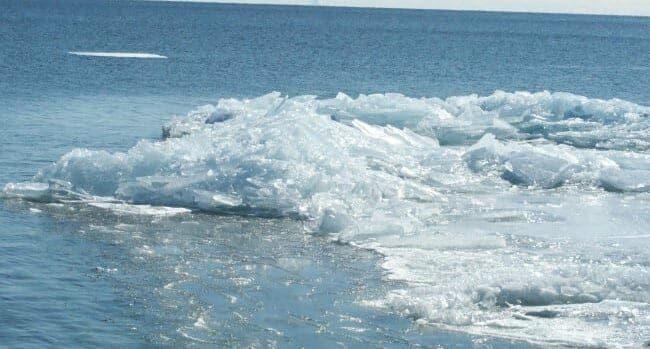 Oceans feed the world – but rapid change in our oceans has put the food supplies of billions of people in jeopardy. We need to understand why, and find out what we can do about it.
Oceans feed the world – but rapid change in our oceans has put the food supplies of billions of people in jeopardy. We need to understand why, and find out what we can do about it.
For more than half the world’s population, from Africa to Asia and beyond, fish represents in excess of 50 per cent of their animal protein intake. And for billions of people without access to preservation technologies and energy, oceans are a natural refrigerator. People go out every day to catch lunch or dinner.
But two recent reports detail how global warming will compromise life in and dependent on the world’s oceans.
The International Union for Conservation of Nature claims that, since 1975, oceans have adsorbed more than 90 per cent of all the extra heat caused by global warming. The resulting ocean warming, combined with other threats like acidification and reduced oxygen in the water, has led to a variety of impacts on marine life. Those include movement of fish species toward the poles, increased incidence of disease, and coral reefs bleached white and devoid of life. Oceans, then, have become the world’s coolant device – at great cost to the planet and its inhabitants. Food security is under threat.
| RELATED CONTENT |
| Eat less meat, save the environment and pay less at the grocery store By Gerry Chidiac |
| The red meat merry-go-round By Sylvain Charlebois |
| The state of oceans the world’s No. 1 environmental challenge By Gwyn Morgan |
Another report, from the University of British Columbia, details how the alarming state of our oceans impacts industry. The report says fisheries stand to lose about $10 billion in annual revenue by 2050 if climate change patterns remain unchecked.
Of course, some regions should gain as fish seek cooler waters for survival. Greenland, Ireland and even Canada could be net beneficiaries of climate change.
Since oceans represent a largely unexplored frontier, and cover almost 75 per cent of the planet, we don’t always appreciate how fisheries sustain our food systems. So it’s critical that we gather more information and improve our technology rated to fisheries and oceans. We need to better predict the future of seafood systems. Acquiring substantial data and monitoring human interactions will be critical.
Our improved understanding can lead to policy change and the establishment of programs to support industry.
The Ocean Frontier Institute (OFI) at Dalhousie University is collaborating with Memorial University of Newfoundland and the University of Prince Edward Island. And in turn, these Atlantic Canada researchers will collaborate with institutes around the world to examine the changing oceans. OFI has received $230 million in public and private funds over the last few weeks to further the work of better understanding what’s happening to oceans as a result of climate change.
This multi-year project will increase oceanographic and marine science knowledge. And it delves into how humanity and oceans can cohabit and create better supports for global food systems.
The global consumption of fish has doubled in just a few decades and that demand is expected to continue to grow. From the sushi phenomena to the growing popularity of the Mediterranean diet, the western world is embracing the wealth of oceans.
In the midst of this are bizarre food distribution anomalies. For example, the United States imports nearly all seafood it consumes and exports almost everything it produces. Pure economics are behind this: other countries earn more selling to the U.S. than they can selling to their own citizens. So protein malnutrition threaten some of the world’s vulnerable regions and this situation may get worse.
Some countries, like Canada, want to expand aquaculture production. But interaction between oceans and aquaculture makes many Canadians uneasy. Developing sustainable aquaculture, then, will require more study of best practices and social attitudes.
Typically when Canadians discuss protein-related foods, they look to our key livestock industries: cattle, hog and chicken. In comparison to those terrestrial food sources, fish stocks are transient and invisible. That can make oceans and their issues easily overlooked. But fish and seafood must be part of any discussions about sustainable food systems.
Our nation is surrounded by the world’s longest coastline. Canada must be a leading force in advocating for the health of our oceans and the newly formed institute at Dalhousie can help.
Dr. Sylvain Charlebois is senior director of the agri-food analytics lab and a professor in food distribution and policy at Dalhousie University.
Sylvain is a Troy Media Thought Leader. Why aren’t you?
The views, opinions and positions expressed by columnists and contributors are the author’s alone. They do not inherently or expressly reflect the views, opinions and/or positions of our publication.

